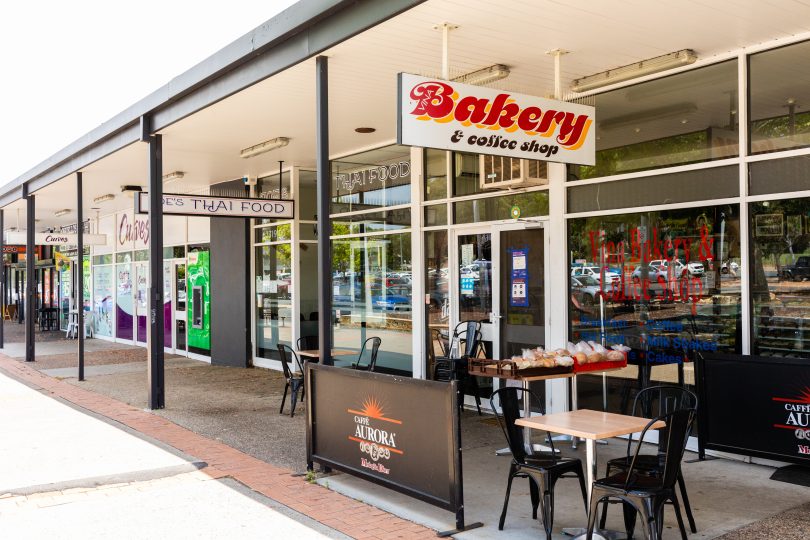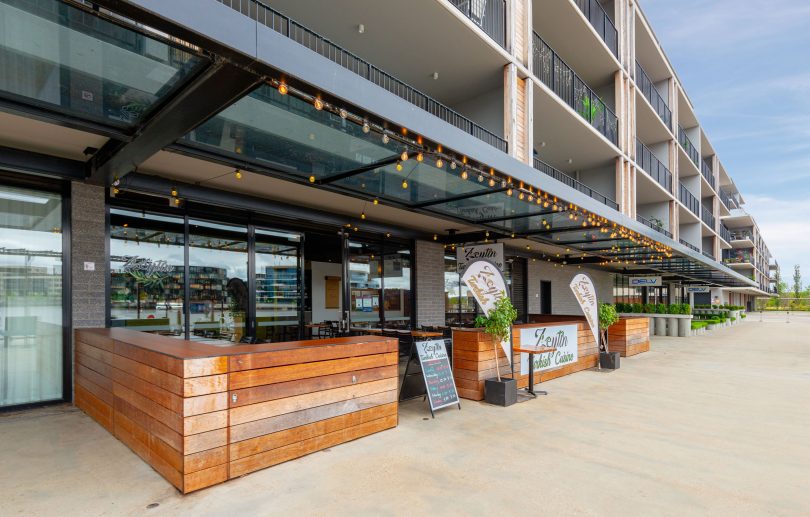
The next few months will be make or break for many small hospitality and retail businesses in Canberra. Photo: Daniella Jukic – We Are Found.
Canberra retailers and hospitality operators are relishing post-lockdown spending, but many are treading carefully as we enter the new year.
Canberra Business Chamber CEO Graham Catt says that while there are definitely good trading conditions and promising signs this will continue, the first few months of 2022 will be crucial for some businesses.
“We’re hearing from small businesses that they are both optimistic and frightened,” Mr Catt said.
“Many built up debt or had to spend heavily over lockdown and they are seeing this next few months as make or break when it comes to their business survival.”
Mr Catt said the lockdown had a huge impact on local retailers with no money coming in from sales and, in the first few weeks of lockdown, even deliveries weren’t an option as business owners were prohibited from accessing their stores.
“Click and collect and deliveries did help when these became an option, but they might have provided 5 or 10 per cent of a small business’s normal takings,” he said.
“Most hospitality businesses were shut down entirely, at best still operating takeaway or delivery or takeaway services that often wouldn’t cover their operating costs.
The next few months will determine whether a business is viable and can continue operating in 2022. Mr Catt added now is the time for the community to show support for small businesses by continuing to shop local.
“Shopping can be an experience where Canberrans can browse, discover new stores and new experiences, stop for a coffee or lunch and make a day of it,” Mr Catt said.
“We need to see people out and about, helping to drive our local economy.
“When we shop and spend locally we’re supporting a local family, helping them create a job that supports another local family, and growing our economy to support our community.”

A unit at Trevillian Quay on the Kingston Foreshore was recently sold by Civium Properties, despite the COVID-19 hospitality business slump. Photo: Civium Properties.
Despite the tough two years for small businesses, investors remain optimistic about the future of the Canberra economy and continue to snap up commercial properties.
Civium Property Group director Andrew Smith said the interest from buyers has been strongly influenced by the strength and track record of tenants in the property.
“If the tenant has a strong track record, then investor interest has been very high,” he said.
He said while interest rates remain low, investors will look to commercial property, including hospitality and retail premises, to generate cash return from their investments rather than investing their money in deposits with the banks.
While hospitality businesses in the CBD or major town centres have been impacted by lower office building occupancy rates, particularly those businesses reliant on public service office workers as customers, Mr Smith said the flipside to this has been the increased trade and patronage for hospitality businesses in suburban locations.
“With more people working from home, the suburban shopping centres and cafes have seen a strong increase in trade,” Mr Smith said.
“Businesses that were able to adapt to take away or delivery offerings were more resilient during the shutdown periods.”
Due to low stock and high demand, commercial investment opportunities in suburban areas remain competitive.
Mr Smith said the most challenging impact of the COVID restrictions for Civium was adapting the Commercial Code of Conduct to the individual situations of every business, often involving rent relief negotiations between landlords and tenants.
“We found in most circumstances that landlords and tenants were reasonable in their negotiations, with fair outcomes agreed,” he added.
The Canberra Business Chamber said they can provide struggling businesses with information about the latest government programs, provide support to manage their team and build their networks as they get back on their feet.
“Most importantly, we’re here to be the voice of business. The stories and information they share help us to communicate their needs and concerns to government and the community,” Mr Catt added.

















